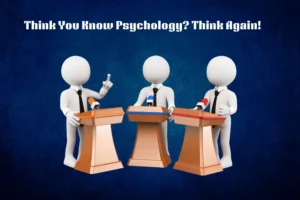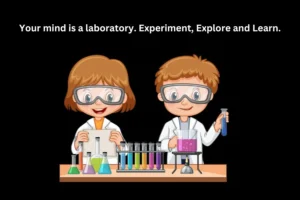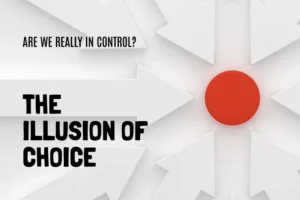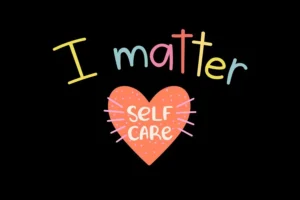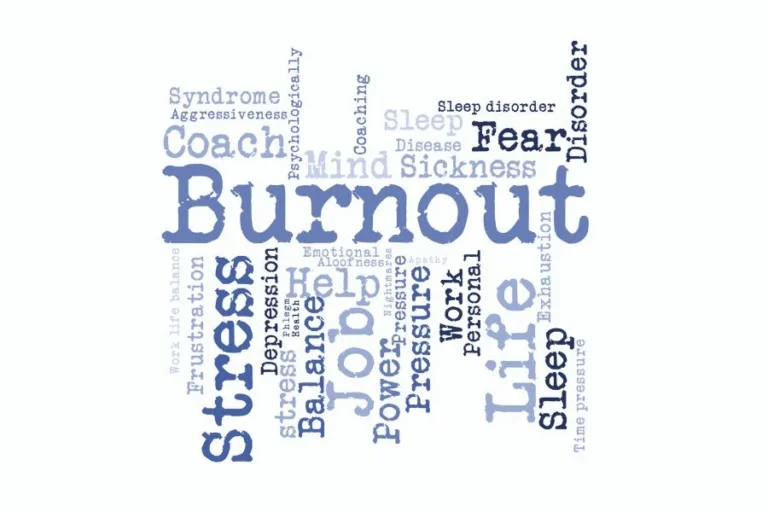A key idea in cognitive psychology, especially when it comes to diagnosing and treating depression, is the cognitive triad. In the 1960s, psychiatrist Aaron T Beck created it.
The term “cognitive triad” describes the three main elements of pessimistic thought processes that are frequently seen in depressed people. Among these are pessimistic ideas about oneself, the outside world, and the future.
Self-defeating or inadequate feelings are common expressions of negative self-thoughts. Perceptions of the world as unfriendly, unfair, or devoid of opportunity are examples of negative ideas about it. Pessimistic views about one’s chances and an expectation of ongoing failure or disappointment are typical components of negative thinking about the future.
- Importance of understanding cognitive triad in mental health
- A brief overview of Aaron T. Beck’s contributions
- Understanding Depression, Cognitive triad and Cognitive Distortions
- What is Beck’s theory of depression?
- What are the three parts of the cognitive triad?
- What is an Example of Cognitive Triad?
- How does the cognitive triad influence perception and behavior?
- Cognitive Therapy Techniques for Addressing Negative Thoughts
- Step-by-step guide to cognitive restructuring exercises
- Cognitive Behavioral Therapy (CBT)
- Tips for identifying and challenging negative thoughts in daily life
- Impact of Cognitive Triad Awareness on Personal Growth
- Conclusion: Embracing Growth Through Cognitive Triad Mastery
- FAQS
Importance of Understanding Cognitive Triad in Mental Health
Treating mental health conditions, especially depression, successfully requires an understanding of the cognitive triad of depression. Skewed perceptions of reality, or cognitive distortions, can aggravate depression symptoms and fuel a never-ending cycle of pessimism and emotional discomfort.
Mental health experts can assist people in developing healthier thought patterns and coping methods, which can enhance their general well-being, by recognizing and correcting cognitive distortions.
A Brief Overview of Aaron T. Beck’s Contributions
Due to his groundbreaking work in cognitive psychology and psychotherapy, Aaron T. Beck is widely recognized as the founder of cognitive therapy. Beck created the “Beck’s cognitive model of depression” as well as cognitive therapy, an organized therapeutic method for recognizing and addressing dysfunctional thought processes.
By emphasizing the crucial role that cognition plays in emotional disturbances and offering evidence-based methods for treating a range of mental health conditions, Beck’s contributions transformed the discipline of psychology.
Related reading: Mind-Blowing the History of Psychology
Understanding Depression, Cognitive triad and Cognitive Distortions
A frequent mental health condition called depression is marked by enduring melancholy, hopelessness, and apathy. Millions of people are impacted globally, and it can seriously lower quality of life and everyday functioning.
Explanation of Depression and its Prevalence

With a complicated etiology combining genetic, biochemical, psychological, and environmental components, depression is a multifaceted disorder. Changes in mood, appetite, sleep habits, and cognitive function are just a few of the many symptoms that can appear in varying degrees of severity and variety.
The World Health Organization (WHO) estimates that depression affects 264 million people worldwide and is one of the major causes of disability. It tends to peak in adolescence and early adulthood and is more common in women than in males.
Cognitive Distortions and Their Role in Depression
Irrational or negative thought processes, sometimes referred to as cognitive distortions, are important contributors to the onset and persistence of depression. These distortions alter how reality is seen, causing one to view circumstances, events, and oneself in an inflated or incorrect way.
Typical cognitive distortions consist of:
| All-or-nothing thinking | Seeing things strictly in black-and-white without taking into account any gray areas. |
| Overgeneralization | Making assumptions about a large number of people or events based on scant information. |
| Catastrophizing | Exaggerating the significance or ramifications of unfavorable occurrences while preparing for the worst. |
| Personalization | Taking credit or blame for uncontrollable circumstances. |
| Disregarding the positive | Downplaying or ignoring satisfying experiences or accomplishments. |
The Link Between Cognitive Distortions and The Cognitive Triad
The way that cognitive distortions are grouped around unfavorable assumptions about oneself, the outside world, and the future is explained by Beck’s cognitive model of depression. Depressive symptoms are maintained in part by cognitive distortions that reinforce and sustain these unfavorable views.
Depression, for instance, can cause a person to have a persistent feeling of worthlessness (negative self-belief), believe that the world is cruel and unforgiving (negative world belief), and believe that they will continue to fail and be disappointed in the future (negative future belief). The depressed cycle is strengthened by these misguided thoughts, which exacerbate feelings of helplessness and despair.
Related Reading: Snyder’s Hope Theory: Rise from Ashes to Glory
What is Beck’s Theory of Depression?
A foundational contribution to the knowledge and management of depression is Beck’s cognitive theory of depression. It suggests that contrary to previous psychoanalytic beliefs, depression is predominantly caused by flawed cognitive processes rather than just physiological abnormalities or unconscious tensions.
Beck’s Cognitive Theory of Depression
According to Beck’s cognitive model of depression, automatic thought patterns, underlying assumptions, and cognitive schemas play a major influence in determining how people feel and behave. As per this paradigm, people who suffer from depression display a negative cognitive triad, in which their thinking patterns are dominated by negative ideas about themselves, the world, and the future.
Automatic thoughts are transient, unplanned ideas that come to mind in reaction to particular circumstances or stimuli. These ideas frequently lead to emotional discomfort and unhealthy coping mechanisms because they are prejudiced, illogical, and self-defeating.
On the other hand, fundamental presumptions or schemas that affect how people understand and evaluate their experiences are known as underlying beliefs. Repetitive cognitive processing reinforces negative beliefs, such as “I am worthless” or “The world is cruel,” which form the basis of skewed thought patterns.
How Beck’s Cognitive Theory Revolutionized The Understanding of Depression
By emphasizing the role of cognitive processes in the genesis and management of depression, Beck’s cognitive model of depression signified a paradigm change in the field of psychology.
In Beck’s research, the majority of the conceptualization of depression was as a disorder of affect or mood, with little attention paid to cognitive components. Through his explanation of the cognitive foundations of depression, Beck offered a thorough framework for comprehending the relationship between ideas, feelings, and actions. His idea helped to shape cognitive therapy, an experimentally validated therapeutic modality that directly targets dysfunctional thinking patterns
Importance of Addressing Negative Thoughts in Therapy

To eliminate distorted thinking, irrational thoughts and enhance psychological well-being, Beck’s cognitive therapy places a strong emphasis on the significance of recognizing and confronting negative ideas and distorted thinking during treatment sessions. Therapists support their clients in exploring the truth and validity of their automatic thoughts and underlying beliefs through guided discovery and collaborative empiricism.
Through the process of cognitive restructuring, which involves altering maladaptive thought patterns, people can develop more realistic and adaptable thought processes. This process entails challenging the data supporting and refuting unfavorable ideas, coming up with new behavioral tactics, and producing alternate interpretations.
What Are The Three Parts of The Cognitive Triad?
Each element influences the cognitive and emotional environment of an individual in a unique but related way. The three interconnected parts of the cognitive triad (depressive triad) are given below:
| Negative Thoughts About Oneself | This component deals with people’s opinions and convictions about their value, competency, self-worth, self-concept, self-beliefs and self-image. Suicidal thoughts about oneself frequently take the form of sentiments of inadequacy, ineptitude, self-blaming, self-criticism, negative self-schemas or unworthiness. Negative self-talk examples include “I’m a failure,” “I’m unlovable,” or “I’m worthless.” |
| Negative Thoughts About the World | This part includes how people view other people, society, and their circumstances in addition to their immediate surroundings. Perceiving the world as unfriendly, unjust, or essentially hazardous is one example of negative world beliefs. Feelings such as “I can’t trust anyone,” “Life is unfair by nature,” and “People are out to get me” are examples of pessimistic thoughts about the world. |
| Negative Thoughts About the Future | This element concerns people’s expectations and hopes for future occurrences, results, and opportunities. Pessimistic thinking and prophecies that foresee ongoing failure, disappointment, or dissatisfaction are common components of negative future beliefs. Some pessimistic beliefs regarding the future are “I’ll never succeed,” “Nothing will ever change,” and “I have nothing to look forward to.” |
What is an Example of Cognitive Triad?
Examples of cognitive triad are given below:
| Negative Thoughts About Oneself | “I’m worthless and undeserving of love.” “I’m a failure at everything I do.” “No one cares about me, and I’m better off alone.” |
| Negative Thoughts About The World | “The world is a cruel and unforgiving place.” “People are inherently selfish and untrustworthy.” “Life is just a series of disappointments and setbacks.” |
| Negative Thoughts About The Future | “I’ll never amount to anything, no matter how hard I try.” “Things will never get better, so why bother trying?” “I’m doomed to a life of misery and suffering.” |
How Does The Cognitive Triad Influence Perception and Behavior?
The negative triad has a significant impact on how people view themselves, their surroundings, and their hopes for the future. Each component’s negative ideas and beliefs affect howone interprets experiences, relationships, and events, influencing behavioral and emotional responses.
For instance, someone who has low self-esteem could take helpful criticism as evidence of their incapacity, which could cause them to feel guilty and insecure. Similarly, those with negative worldview and pessimistic thinking may be more likely to see friendly interactions as threatening or aggressive, which can lead to mistrust and social disengagement. Negative cognitions can erode goal-directed conduct, resulting in inactivity and surrender in the face of difficulties.
In general, people see and understand the world through a cognitive filter provided by the cognitive triad. Through the identification and modification of dysfunctional attitudes, faulty thinking patterns and maladaptive beliefs within each component, people can develop a more adaptive and balanced self-concept, which improves emotional resilience and overall well-being.
Related Reading: Cognitive Evaluation Theory: How It Helps You
Cognitive Therapy Techniques for Addressing Negative Thoughts
The goal of cognitive therapy, commonly referred to as cognitive-behavioral therapy (CBT), is to uncover and change dysfunctional attitudes and negative cognitions through an organized therapeutic process. It stresses the reciprocal interaction between ideas, emotions, mental schemas and behavior is based on the concepts of cognitive psychology.

Overview of Cognitive Therapy and its Principles
The foundation of cognitive therapy is the idea that dysfunctional attitudes, as opposed to outside events or situations have a greater influence on psychological discomfort. People can strengthen their coping mechanisms and reduce emotional pain by addressing dysfunctional attitudes.
Among the fundamental ideas of cognitive treatment are:
| Collaborative Empiricism | Using empirical research and evidence-based reasoning, therapists and clients jointly determine the existence of automatic thoughts and underlying beliefs. |
| Socratic Questioning | To help clients acquire insight into their cognitive processes and confront dysfunctional attitudes, therapists utilize probing questions to encourage critical thinking and self-reflection. |
| Behavioral Experimentation | To obtain evidence in favor of more adaptive ways of thinking and acting, clients conduct real-world experiments to examine the veracity of their negative schemas and presumptions. |
Techniques for Addressing Negative Thoughts
Techniques for addressing negative thoughts are given below:
| Cognitive Restructuring | This Technique entails recognizing and disputing maladaptive schemas and instinctive ideas that fuel emotional suffering. Clients gain the ability to identify cognitive distortions and swap them out for more realistic and balanced perspectives. Examples of these distortions include catastrophizing and thinking in black and white. |
| Thought Challenging | Clients are urged to examine other viewpoints and interpretations while challenging the data supporting and refuting their irrational thoughts. Through the process of scrutinizing the precision and soundness of their cognitive distortions, individuals can cultivate more adaptable and flexible thought processes. |
| Behavioral Experiments | To verify the accuracy of their pessimistic assumptions and forecasts, clients participate in behavioral activities or experiments. Clients can assess the real results of their conduct by methodically observing and gathering data, which challenges irrational thoughts and promotes adaptive coping mechanisms. |
Step-by-Step Guide to Cognitive Restructuring Exercises
Here is the scientific and research based step-by-step guide from Basics of Psychology to cognitive restructuring exercises:
| Recognize Automatic Thoughts | Start by focusing on your thoughts and observing automatic thoughts that come to mind when exposed to particular circumstances or stimuli. These ideas can come to mind without conscious awareness and are frequently transient. |
| Consider The Evidence | After you’ve recognized negative interpretation, consider the arguments for and against it. “What evidence supports this thought?” and “Is there any evidence that contradicts it?” are some questions you should ask yourself. |
| Question Illogical Beliefs | Next, question the veracity of your automatic ideas by verifying the veracity of underlying presumptions and beliefs. Think about more realistic and balanced readings and different points of view. |
| Create Alternate Ideas | Construct more flexible, alternative interpretations of the circumstance or occurrence. Make an effort to reframe the negative thinking in a way that is more empowering and beneficial. |
| Test New Beliefs Through Behavioral Experiments | Lastly, put your new beliefs to the test by conducting behavioral tests or completing tasks intended to elicit data in favor of more flexible thought processes. Observe any shifts in your feelings or actions brought on by embracing fresh viewpoints. |
Cognitive Behavioral Therapy (CBT)

Cognitive behavioral therapy (CBT) is based on behavioral theory and cognitive psychology, with a focus on how cognition influences behavior and emotional experiences. It takes a and problem-solving approach to treatment, concentrating on recognizing and changing unhealthy thought patterns and behavioral patterns that fuel psychological suffering.
Benefits of CBT in Targeting Cognitive Distortions and The Cognitive Triad
When it comes to treating cognitive distortions and the cognitive triad, CBT has the following benefits:
| Empirical Support | Several randomized controlled studies and meta-analyses have shown that cognitive behavioral therapy (CBT) is an effective treatment for a wide range of mental health conditions, making it one of the psychotherapeutic techniques with the greatest scientific and empirical backing. |
| Systematic and Structured | CBT offers particular methods and tactics for confronting unfavorable ideas and attitudes, as well as an organized framework for recognizing and treating cognitive distortions. |
| Skill-Building | Cognitive Behavioral treatment (CBT) gives people useful skills and cognitive coping mechanisms they may use outside of treatment sessions, enabling them to actively manage their mental health. |
| Collaborative Approach | The collaborative method in cognitive behavioral therapy (CBT) fosters a sense of empowerment and autonomy in the therapeutic process by emphasizing active participation and collaboration between the therapist and the client. |
Tips for Identifying and Challenging Negative Thoughts in Daily Life
Here are the scientific and research based tips from Basics of Psychology for identifying and challenging negative thoughts in daily life:
| Mindfulness | Develop an awareness of your thoughts and feelings in the present moment by engaging in mindfulness practices like deep breathing exercises or mindfulness meditation |
| Maintain a Thought Journal | Write down your feelings and ideas as they come to you during the day in a journal or diary. Examine your entries frequently to spot trends and things that make you think negatively. |
| Seek Social Support | When faced with difficult circumstances, seek out the assistance and viewpoint of dependable friends, family members, or mental health specialists. |
| Develop Self-Compassion | Acknowledge that everyone has bad thoughts and feelings occasionally, and treat yourself with kindness and compassion. Be nice and understanding to yourself. |
Impact of Cognitive Triad Awareness on Personal Growth
Understanding the cognitive model of depression and how it influences how one thinks can have a significant impact on emotional stability and personal development. Through the identification and refutation of negative thoughts and beliefs, people can develop a more adaptive and balanced cognitive schema, which improves psychological flexibility and overall well-being.
Understanding the cognitive triangle helps people to understand the basic processes that underlie their feelings, ideas, and actions. An increased sense of self-awareness and agency can be fostered by individuals challenging and reframing maladaptive thought patterns once they see the connections between unfavorable views about themselves, the world, and the future.
Iterative and continual self-reflection, introspection, and mindfulness are necessary for personal growth. People can increase their resilience to hardship and uncertainty by developing a regular practice of self-awareness and mindfulness.
People can gain a deeper awareness of their thinking processes and emotional reactions through writing, mindfulness meditation, and other contemplative activities, which can lead to increased insight and self-regulation. Through lifetime evolution and growth, people can stay receptive to new experiences and viewpoints.
Conclusion
To sum up, the cognitive triad is a fundamental idea in cognitive psychology and psychotherapy, especially when it comes to comprehending and treating depression. By realizing how harmful ideas about oneself, the outside world, and the future are interconnected, people can start to question and reframe unhelpful thought patterns, which promotes emotional stability and personal development.
We looked at the history, importance, and effects of the cognitive triad on mental health and overall well-being in this article. We talked about the contributions made by Aaron T Beck to the fields of cognitive psychology and psychotherapy, emphasizing how important cognition is in emotional disorders.
To show how negative thought patterns can contribute to and intensify depressive symptoms, we also looked at the relationship between cognitive distortions, depression, and the cognitive triad. Through comprehension of the cognitive triad’s elements and application of cognitive therapy approaches, people can learn to recognize and confront unfavorable thoughts, resulting in enhanced emotional state and overall functioning.
Lastly, we looked at how to apply cognitive restructuring in real-world situations and how cognitive triad awareness affects personal development. People can overcome negative thought patterns and develop a more robust and adaptive mindset by adopting the concepts of cognitive therapy and practicing self-awareness and mindfulness.
Finally, we invite readers to apply the cognitive triad’s findings to their own lives to cultivate a stronger feeling of resilience, self-awareness, and overall well-being. People can embrace the transforming potential of cognitive triad mastery and set off on a journey of self-discovery and personal progress by learning more about the subject.
FAQS
What is “cognitive triad”?
In cognitive psychology, the term “cognitive triad” refers to a notion that, when applied to depression, comprises three categories of negative thoughts: self-, other-, and future-related.
By whom was the cognitive triad developed?
Aaron T. Beck, a psychiatrist who invented cognitive therapy and made substantial contributions to our knowledge of depression, created Beck’s cognitive triad.
How does Beck’s cognitive triad contribute to depression?
According to Beck’s cognitive triad, depression develops and is maintained primarily through negative ideas about oneself, the outside world, and the future.
What are cognition distortions?
Irrational or exaggerated beliefs that lead to unfavorable feelings and actions are known as cognitive distortions. They frequently entail flawed thought processes and cognitive biases.
How can cognitive distortions be addressed in cognitive therapy?
By analyzing the available data, taking into account different interpretations, and cultivating more realistic and balanced thought patterns, cognitive therapy assists patients in recognizing and challenging cognitive distortions.
What is CBT, or cognitive behavioral therapy?
A popular treatment strategy for enhancing mental health and well-being is cognitive behavioral therapy (CBT), which focuses on recognizing and altering unfavorable thought patterns and behavior patterns.
How does therapy including cognitive restructuring operate?
To enhance mood and behavior, cognitive restructuring entails recognizing and disputing unfavorable or illogical ideas and substituting them with more realistic and useful beliefs.
What is depression according to the cognitive theory?
According to Aaron T. Beck’s cognitive theory of depression, faulty thought processes and unfavorable beliefs—rather than only outside circumstances—are the main causes of depression.
How does the cognitive triad relate to the explanation of depression?
Understanding how cognitive distortions—described in the cognitive triad—contribute to the feeling of depression and direct therapeutic approaches are often necessary to explain depression.
In treatment, what methods are employed to deal with negative thoughts?
Cognitive restructuring thought challenging, mindfulness and behavioral activation are among the therapeutic approaches that are frequently employed to address negative ideas and enhance mental health results.



